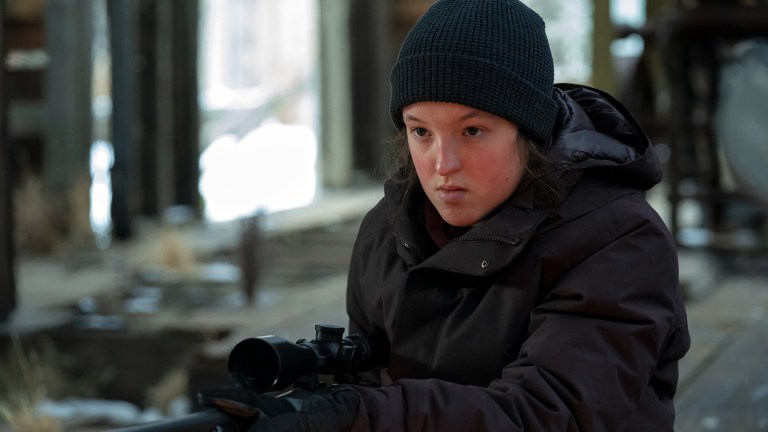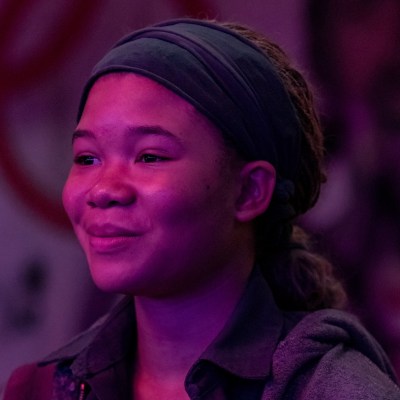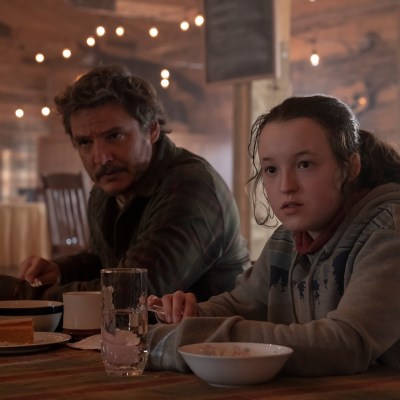The Last of Us Episode 8 Review: This Chapter Works Better as a Video Game
A rare misstep for HBO's The Last of Us makes for its weakest episode of the season thus far.

This Last of Us review contains spoilers.
The Last of Us Episode 8
It’s difficult to assess the value of The Last of Us in a vacuum, divorcing it from its immaculate source material. That’s because the show follows the major story beats of the game so closely that you can’t help but think of the PlayStation classic while watching if you’ve played it before.
In the case of “When We Are In Need,” the show’s version of this storyline doesn’t have quite as much dramatic impact as the same chapter from the game. As an episode of television, all of the scenes and performances work, but the religious overtones revolving around the antagonist, David (Scott Shepherd), feel needless, and the pacing of the episode doesn’t serve the story well, either.
The episode’s success really hinges on David’s portrayal, and unfortunately his characterization feels a little off from the get-go. We meet him as he preaches to his “flock,” a banner reading “When we are in need he shall provide” hanging ominously in-frame as the congregation shivers in the resort lodge the group, for the moment, calls home. It’s clear that we’re meant to feel something is off with David from the jump—even his right-hand man James’ (Troy Baker, whose presence is much appreciated) faith in him is observably shaken.
Later, when Ellie meets David and James (aka Buddy Boy) out in the woods, he comes off like a reasonable, compassionate person. If this had been the first time we as the audience met David as well—which is how it plays out in the game—the reveal of his messiah complex and laundry list of revolting character traits would have been far more compelling. But by this point, we kind of have a feeling that he’s not what he appears to be.
In the game, when we meet David, we as players, just like Ellie, don’t know whether to trust him or not (Nolan North’s performance is just incredible). He and Ellie even survive an infected horde together, so there’s at least a modicum of trust built there before his true, evil nature is fully revealed. On the show, Ellie essentially never forms any kind of connection to David at all, so it feels like less of an up and down emotional rollercoaster for the viewer.
A lot of things about this episode are too telegraphed and heavy-handed to create the kind of slow-burn tension the showrunners and director Ali Abbasi are striving for. When one of David’s men emerges from the bowels of the lodge kitchen and the camera fixates on the tub of sloppily butchered mystery meat he’s carrying…come on. We can put two and two together here. When it’s later “revealed” that David’s flock has been unknowingly chomping on their dead friends and family by Ellie spying an ear on the floor outside her cage, the shock of the cannibalism revelation has all but worn off already.
David’s one-on-one interactions with Ellie are acted well by Shepherd and Bella Ramsey, with the first one in the cabin being the most engaging. But their later confrontation, with David trying his best to indoctrinate Ellie into his cult, is slathered with so much depravity and vitriol that it becomes too coercive, to the point where we have no choice but to hate everything about this guy. In other words, he’s irredeemable to the point where he lacks depth. We learn he’s a lying, megalomaniacal, child-beating, murderous pedophile, but did he really need to be all of those things for us to hate him? It appears that the creators, in an attempt to add dimension to the already fascinating character from the game, actually dulled his impact on the story by dipping him in a vat of every modern taboo in the book.
The line about David admiring cordyceps and their ability to “love” is probably the most thought-provoking thing he says all episode, as it addresses a running theme in the show, that people infect, corrupt, and desperately glom onto each other in very much the same way the mushrooms do. But this idea feels somewhat lost in the scene. It’s not that it doesn’t make sense, it’s just that David has so many seriously sick maladies that his faith in mushrooms sounds a little silly and dismissible, even though it’s actually an interesting thought that could flourish if it had more room to breathe.
Aside from the episode’s narrative imbalances, it does continue the show’s undefeated streak of presenting exceptional performances by Ramsey and Pascal. Ramsey does a fantastic job of showing Ellie’s fighting spirit and toughness without ever letting go of her vulnerability. There’s no better example of this than the harrowing moment in which she kills David. As she hacks away at his face (off-screen, mercifully), she’s enraged, but she’s also terrified of herself, and of how close she came to being violated. She’s being traumatized before our eyes, which is soul-crushing to watch. But Ramsey handles the scene so deftly that we’re willing to stay with her.
Pascal has a standout scene, too. When Joel tortures and murders David’s men in his search for Ellie, we can see that he is on a rampage to find her, but we also see that he’s clearly done this before. We know he’s done bad things in the past, but now we’re seeing that he’s willing to let that dark side of himself out if it means protecting Ellie. It’s an ultra-violent scene, but it’s also a nuanced one thanks to Pascal’s tasteful, gradual unveiling of Joel’s wrath.
There are other issues with “When We Are In Need,” like how we never follow up with the rest of the “flock” and the poor little girl who was tricked into literally eating her dead dad as she mourned him. Wouldn’t the fallout of David’s demise amongst the group be relevant to see? Maybe we shouldn’t have been introduced to them at all (the game doesn’t suffer from their absence one bit).
Thankfully, the episode ends on a high note, with Joel consoling Ellie after she’s killed David. He calls her “baby girl,” signaling that he’s embraced her as his daughter. The broken watch Sarah gave him is featured prominently as he squeezes Ellie tight.


